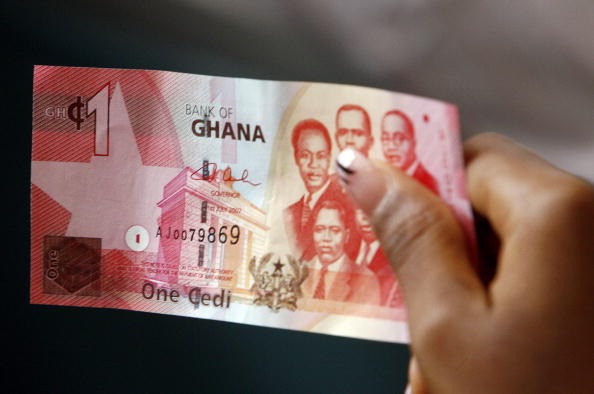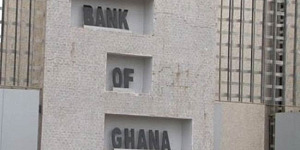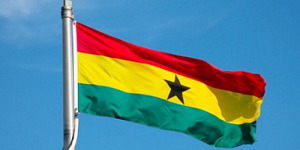Ghana's central bank lowered its monetary policy rate by another 100 basis points to 20.0 percent, saying economic activity remains strong, inflation expectations subdued and the exchange rate of the cedi stable but "slower private sector credit expansion and tightening credit stance on enterprises could dampen the growth momentum."
The Bank of Ghana (BOG) has now cut its key rate four times this year by a total of 550 basis points, most recently in July, and by 600 points since beginning an easing cycle in November 2016.
Ghana's inflation rate has been trending lower this year and fell to 11.6 percent in October, the slowest since August 2013, and the BOG said it latest forecast continues to indicate inflation will reach the target range of 8.0 percent, plus/minus 2 percentage points, in 2018.
This forecast, however, is contingent on continued improvement in the global economy, including oil prices, a stable exchange rate and achieving medium-term fiscal targets.
Total debt by Ghana's public sector rose slightly to 68.6 percent of Gross Domestic Product in September from 68.3 percent in August, with domestic debt declining to 63.3 billion cedi while external debt rose to 75.5 billion.
Ghana's balance of payments position was seen as robust by BOG, with a trade projected to be in a surplus this year, a narrower current account deficit and gross international reserves on track to rise by over US$700 million to $7.4 billion.
In the year to October Ghana's trade account was in a surplus of US$646.1 million compared with a deficit of $2.0 billion in the previous year, based on higher exports of gold, cocoa and oil.
"In sum, the indicators of economic activity and business and consumer confidence remain strong," the BOG said, adding fragilities in the banking sector have been largely contained and the prospects are for a strengthened macroeconomic performance by consolidating gains so far in fiscal adjustment and prudent monetary management.
Ghana's GDP grew by an annual rate of 9 percent in the second quarter, up from 6.6 percent in the first quarter and is projected to end the year with growth of 7.9 percent, driven by the oil sector. In 2016 the economy grew by an estimated 3.5 percent.
The latest confidence surveys also point to improved business and consumer confidence, reflecting favorable prospects for industry, household's financial situation and an improvement in the general economic environment, BOG said.
Ghana's cedi was trading at 4.62 to the dollar today, down 7.4 percent this year and down by 17.3 percent since the start of 2016.





















































